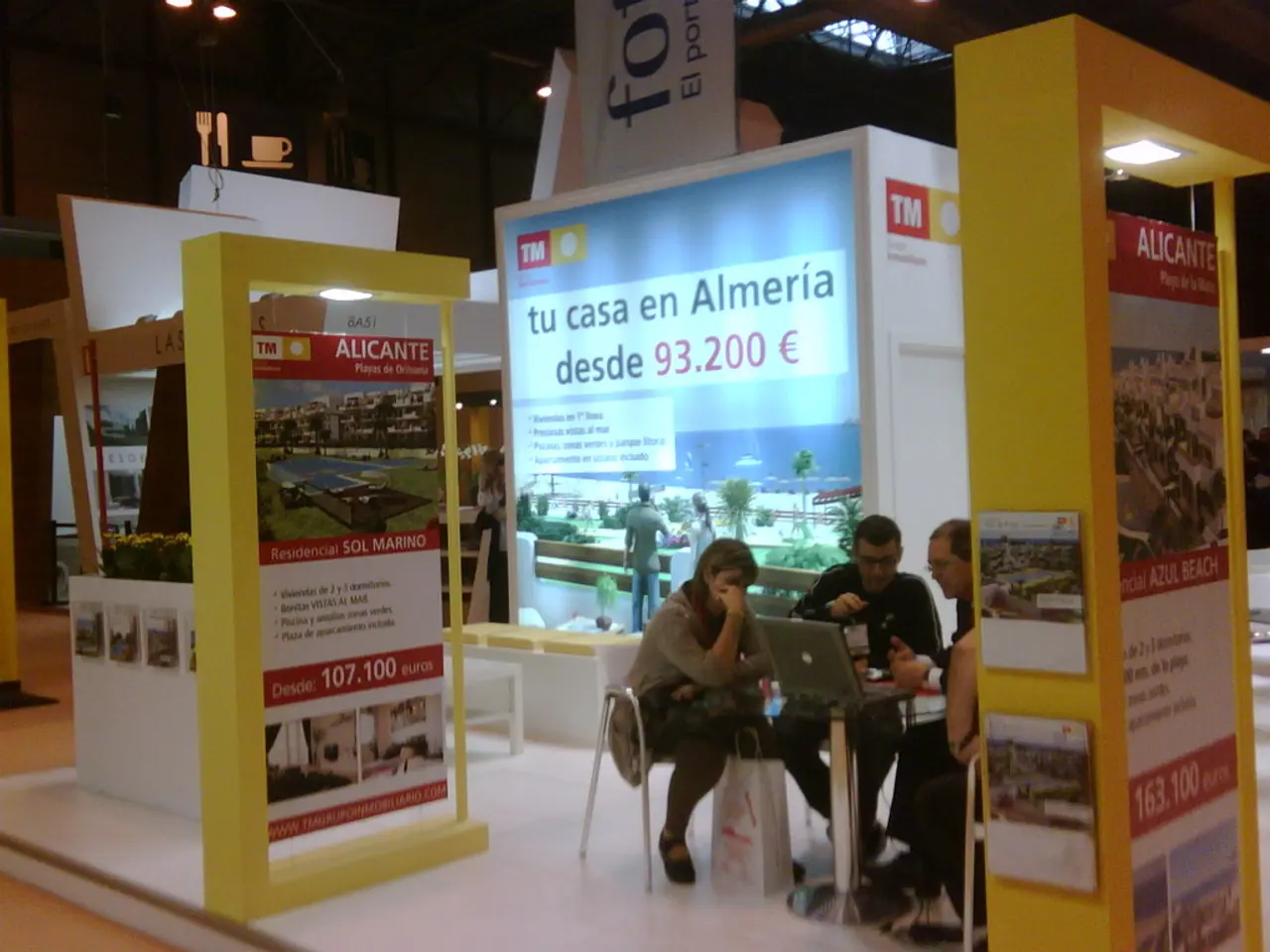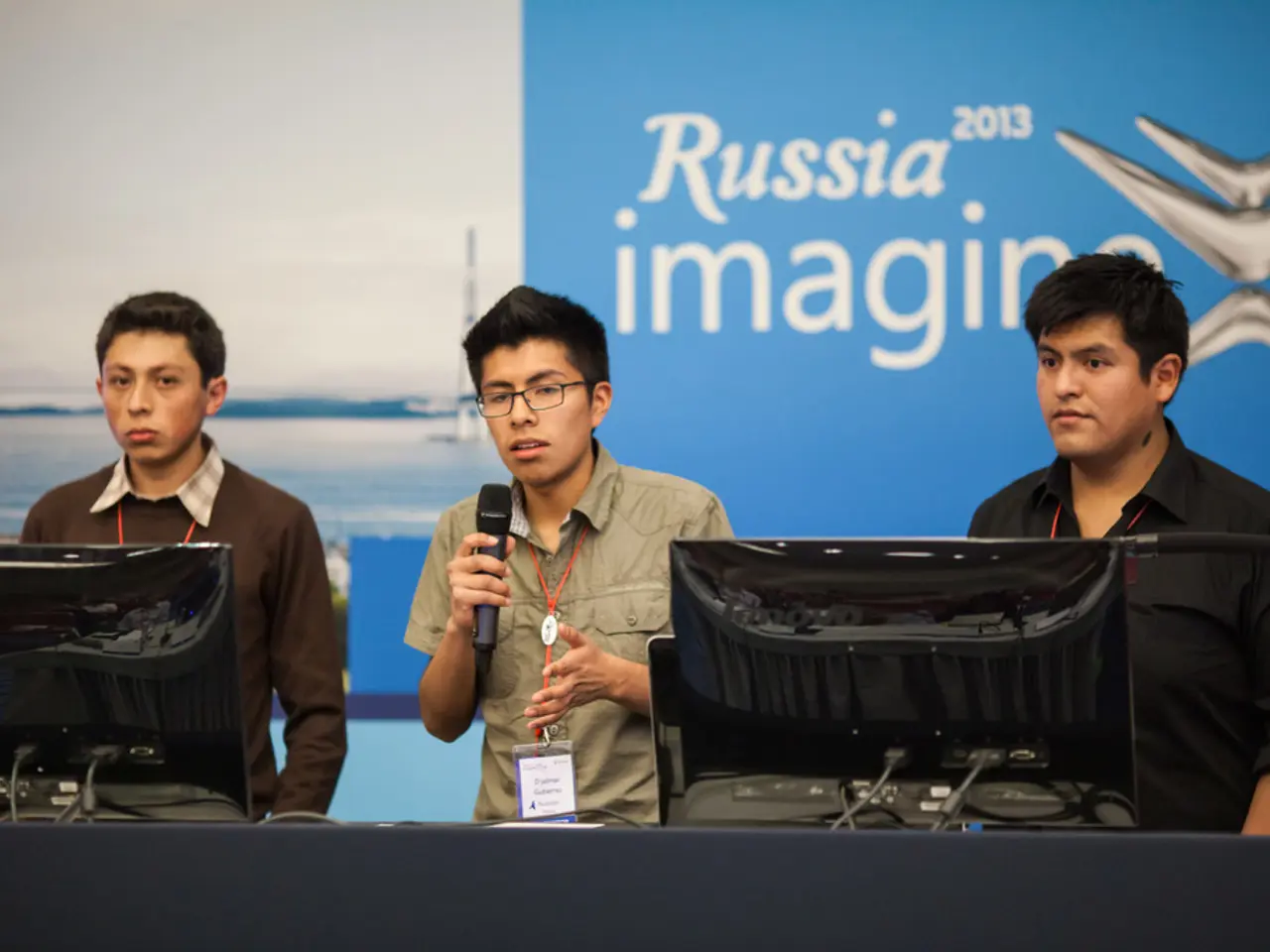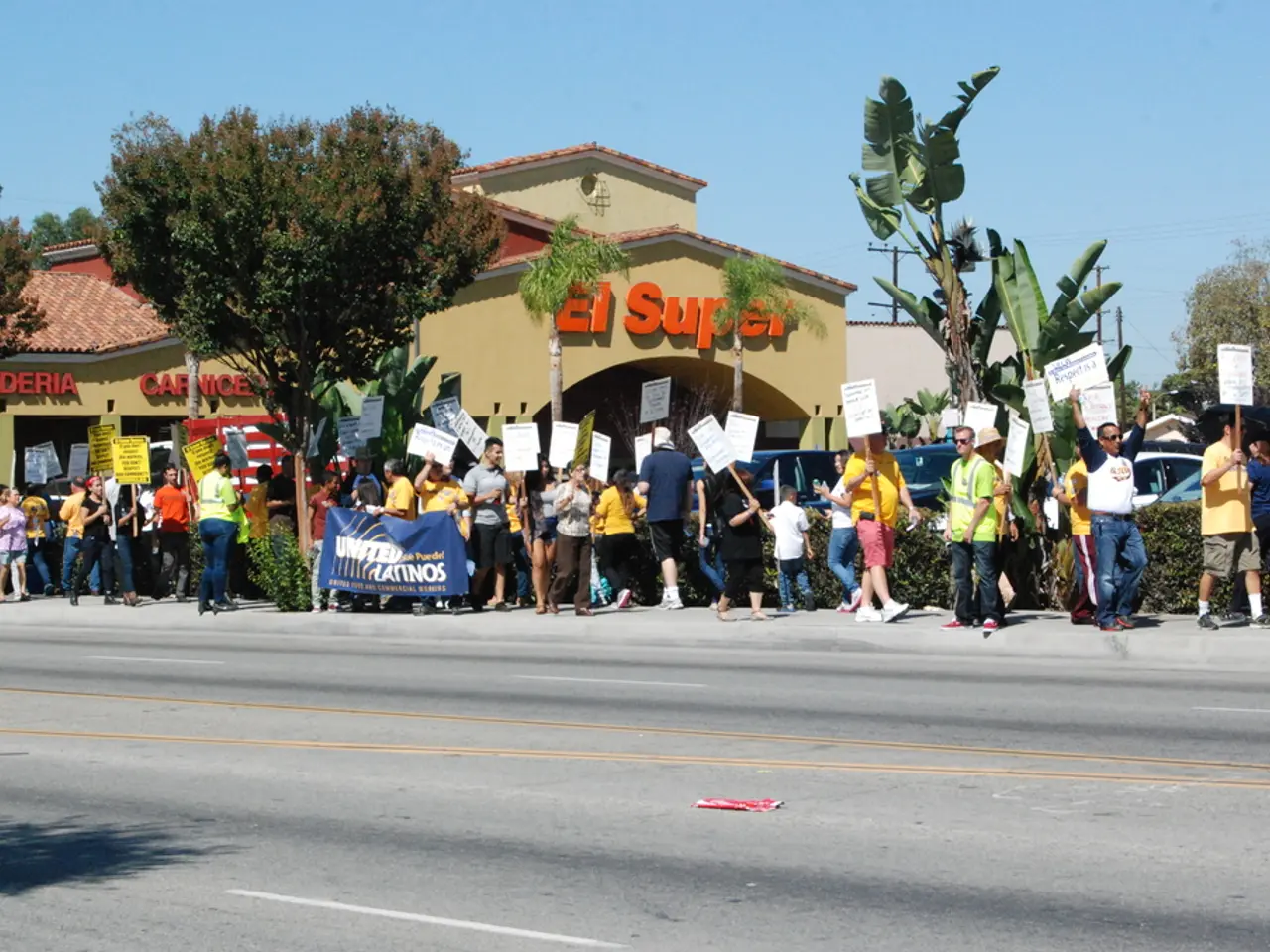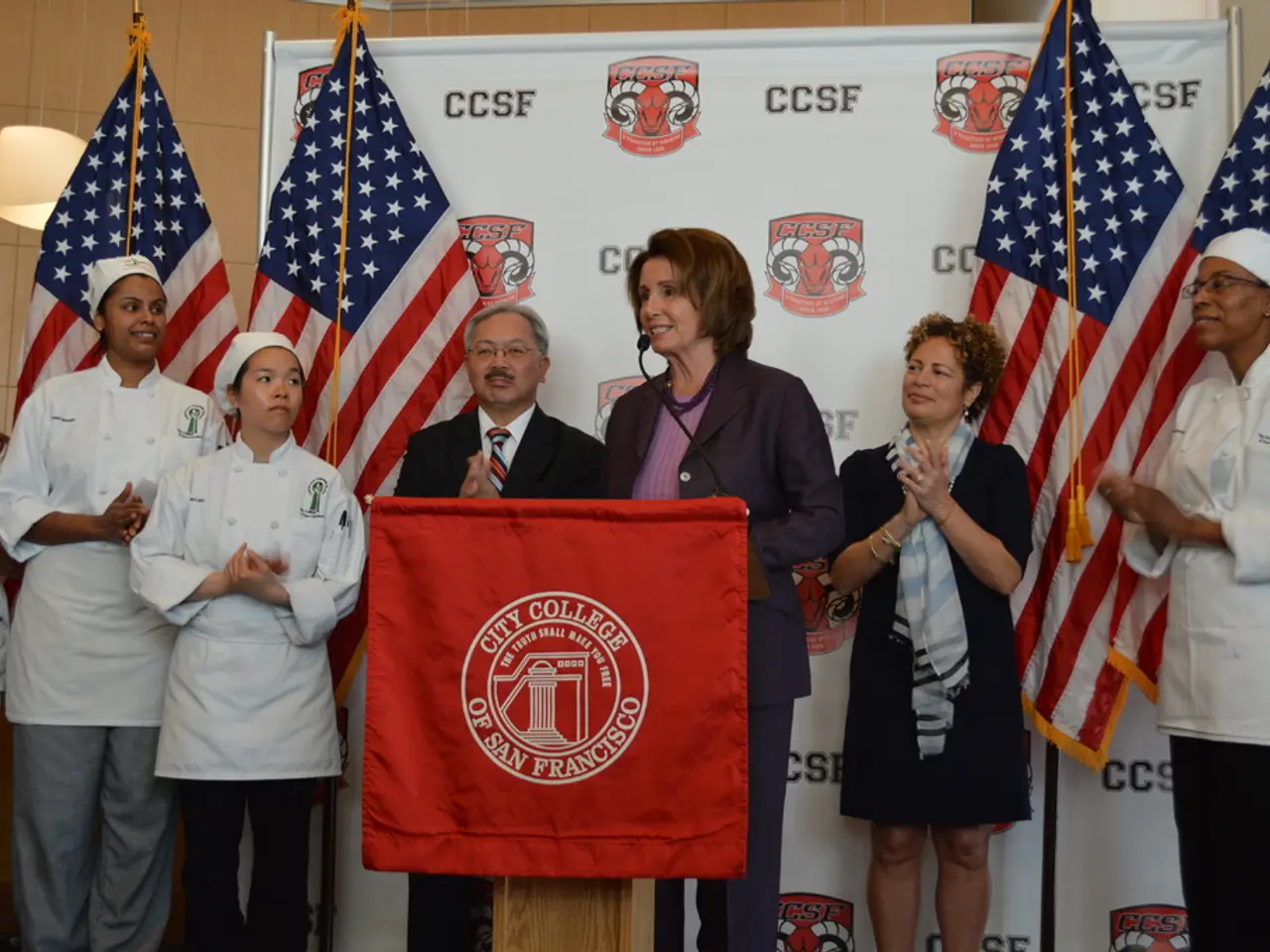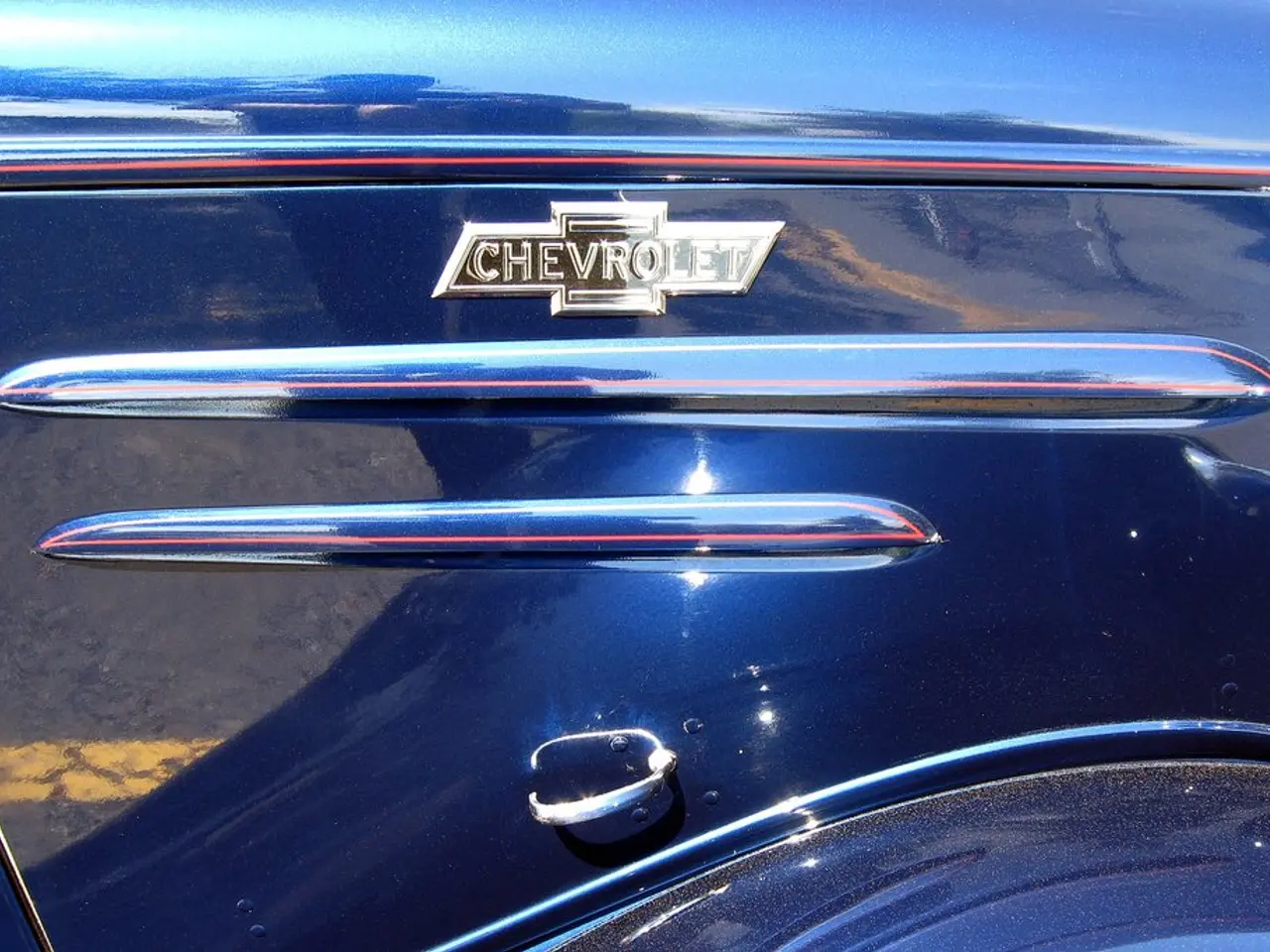Ivory Coast President Ouattara focuses on economic development for his fourth term campaign
Côte d'Ivoire's President Alassane Ouattara has announced his bid for a fourth term, causing a wave of polarisation and concerns about democratic fragility in the West African nation.
Ouattara's decision has been met with opposition, with major parties such as the Democratic Party of Ivory Coast and the African People's Party of Ivory Coast barred from running. This has led to accusations that the election conditions are unfair and peaceful polls unlikely without opposition unity and electoral reforms.
Former Prime Minister Pascal Affi N'Guessan and other opposition members criticise Ouattara for deepening national divisions and undermining democracy. The main opposition figures argue that Ouattara's continued leadership could risk reverting to old-style authoritarian governance in a region where democratic principles are under pressure.
Economically, Ouattara argues his continued leadership will aid Côte d'Ivoire’s goal of reaching upper middle-income status, banking on continuity amid a growing economy and a divided opposition. However, questions about political succession remain unresolved, and analysts warn that Ouattara’s extended tenure could potentially undermine economic stability.
Civil society and religious leaders have expressed significant concern about rising political tensions and polarisation. The election season is considered potentially volatile, with fears of unrest or post-election crises if the current dynamics persist.
Elsewhere, BP made a significant oil and gas discovery off the coast of Brazil, marking its largest global discovery in 25 years. The find could play a big role in BP's efforts to increase daily oil and gas production by up to 2.5 million barrels. However, the company is facing pressure to pull the plug on its 2020 pledge to become a net-zero energy company, which hit a string of hurdles.
Meanwhile, US President Donald Trump renewed his attacks on Federal Reserve chief Jerome Powell, calling him a "total loser" in a vitriolic social media post a day after the central bank kept rates steady again. This comes as the US and China are increasingly decoupling, even as they try to maintain a fragile trade truce.
In other news, India and China - among the biggest importers of Russian oil - have pushed back against the White House's threats of "secondary sanctions" on countries that buy oil from Moscow. This follows US President Donald Trump's order to position two nuclear submarines "in the appropriate regions" in response to what he described as "highly provocative" and "inflammatory" statements from Dmitry Medvedev, the deputy chair of Russia's security council.
Stock markets around the world fell after Trump unveiled a swath of revised tariffs, injecting fresh uncertainty into international markets. This underscores Trump's remaking of the global economic order.
In a positive development, Figma shares more than tripled in the company's New York trading debut, suggesting a turnaround in the tech IPO landscape. Meanwhile, the number of people going hungry worldwide fell by 15 million between 2023 and 2024, a new report said.
The future stability and democratic health of Côte d'Ivoire hang in the balance as Ouattara's fourth-term bid intensifies political friction. Meanwhile, BP's significant oil and gas discovery could play a crucial role in the company's future, but it faces pressure to cut costs and show progress on a turnaround plan. The global economic order is also undergoing significant changes, with the US and China decoupling and Trump's tariff hikes injecting uncertainty into international markets.
The political friction in Côte d'Ivoire, caused by President Alassane Ouattara's bid for a fourth term, raises concerns about the nation's democratic health and stability. Meanwhile, BP's significant oil and gas discovery offers a promising future for the company, although it faces pressure to prioritize cost-cutting and show progress in its turnaround plan.
